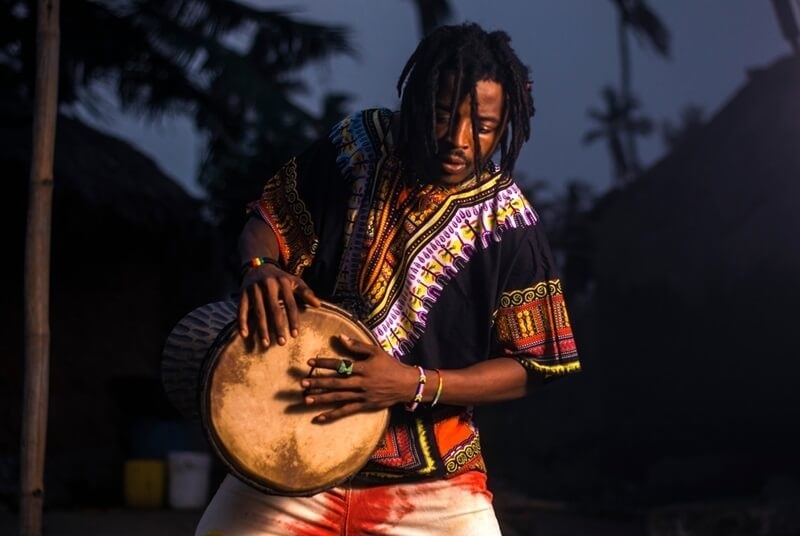
Forget background noise—Afrobeats music is front and center in today’s global soundscape. What started as West Africa’s pulse has turned into a worldwide rhythm that’s reshaping how pop music feels, sounds, and moves. This isn’t just a trend; it’s a takeover. From Lagos to London, Accra to Atlanta, the fusion of Afrobeats with other genres is shifting the DNA of global pop.
Let’s clear the confusion. What is Afrobeat music? It’s not just a catchy playlist name. Afrobeat (singular) is the rebellious, horn-driven, jazz-funk hybrid cooked up by Fela Kuti in the '70s. Long, hypnotic instrumentals. Political fire. Drums that don’t quit. That’s Afrobeat. Now fast-forward. Add slick hooks, auto-tuned vocals, and club-ready beats—you’ve got Afrobeats music (with an "s"). It’s a genre, a movement, and a cultural force.
Afrobeat laid the foundation. Afrobeats built the skyscraper. You can’t talk about today’s pop without tracing the sound back to those sweaty Lagos dancehalls and smoky political protests. The past isn’t gone—it’s just dressed in new production.

The past few years? Wild. Burna Boy headlines Coachella. Tems makes Grammy history. Wizkid and Davido become household names far beyond Nigeria. This isn’t coincidence. It’s strategy, hustle, and a sound that speaks across borders.
Streaming platforms opened the gates. TikTok made the rhythm go viral. Now, Afrobeats tracks top Billboard charts and dominate global playlists. But what makes this fusion irresistible isn’t just the bounce. It’s the blend.
And people aren’t just listening—they’re moving. Dance challenges. Fan-made remixes. DJs flipping Afrobeats into Jersey club or reggaeton sets. The energy is magnetic, and the sound doesn’t sit quietly in a genre box.
Top pick: The Rise of K-Pop and Its Global Cultural Influence
Afrobeats doesn’t sit still. It evolves—daily. You hear it morphing into Afropiano (hello, amapiano drums), tapping into R&B, swirling through EDM, even clashing beautifully with Latin trap. And it works.
This sound isn’t begging for a seat at the table. It’s dragging its own chair in, flipping it backward, and owning the room.
Look at collaborations. Afrobeats x K-pop. Afrobeats x gospel. Afrobeats x drill. These aren’t gimmicks. They're proof the genre can flex and still hold its identity.
Now we’re seeing it influence even indie and alternative circles. Bands in Europe and the U.S. are taking cues from Afrobeats music, layering polyrhythms over synths and using percussion that echoes Afrobeat instrumental DNA. The crossover is real—and growing.
Now here’s something most don’t see coming: Afrobeat Christian music. Yep, worship meets waistline. Churches across Nigeria, Ghana, and even diaspora cities are pumping out gospel tracks with Afrobeats grooves. It’s spiritual fire, laced with dance floor energy.
Faith doesn’t need to be slow and somber. Afrobeat Christian music flips the script. It’s high-energy praise in a language the youth speak—rhythm. And it’s catching on fast.
Some artists even blend scripture-based lyrics with call-and-response hooks, making gospel feel more communal, alive, and relevant. From Sunday services to Spotify playlists, Afrobeat Christian music is creating a new wave of worship that hits harder—and lingers longer.
Strip away the vocals and Afrobeat instrumental tracks still carry the story. Horns. Percussion. Basslines that grab your gut. These aren’t just backing tracks; they’re cultural blueprints.
Whether you’re producing beats, scoring a film, or vibing out in your car, Afrobeat instrumentals set a tone that’s unmistakable. The groove isn’t filler—it’s the foundation.
Producers across the world are leaning into this. Sampling. Recreating. Learning from it. Because even stripped down, this music slaps.
And let’s not ignore how these instrumentals are driving dance culture. No lyrics needed—just drums, rhythm, and soul. TikTok is flooded with challenges that revolve solely around Afrobeat instrumental remixes. It’s proof that the beat alone can start a global movement.
If you haven’t been to an Afrobeat music festival, fix that. The energy is unmatchable. Think: Afro Nation in Portugal, Felabration in Lagos, Afropunk in Brooklyn. These aren’t just concerts. They’re full-on cultural celebrations.
Food. Fashion. Flags waving. Beats dropping. These festivals are where the diaspora unites, the rhythm hits different, and new artists get crowned in real time.
Afrobeats isn’t just streaming numbers. It’s bodies in motion. Feet on dusty grounds or big city stages. It’s that moment when the bass drops and the crowd moves like one.
You’ll find fashion lines launching here, pop-ups from local chefs, dance competitions, and panels on African storytelling and sound. An Afrobeat music festival isn’t just about who’s on stage—it’s about who’s in the crowd, what they’re wearing, and what they’re building next.
Today’s pop sound? Let’s be honest—it’s drenched in Afrobeats. From Rihanna to Ed Sheeran, Beyonce to Justin Bieber, everyone’s borrowing the bounce.
This isn’t appropriation when it’s done right—it’s collaboration. Tems and Future. Rema and Selena. Burna Boy and literally everyone. The formulas are working because the fusion feels natural.
Afrobeats music doesn’t lose itself in these moments. It expands.
Even film scores and ad campaigns are sneaking in Afrobeats music textures—whether it’s a subtle shaker rhythm or a snare that swings with West African flair. The genre’s influence is everywhere, even when you’re not consciously listening for it.
Even as it grows global, Afrobeats doesn’t forget where it came from. Lyrics still slide between English, Yoruba, Twi, and Pidgin. Visuals still rep the streets, the joy, the chaos, the color.
The sound keeps its soul. Whether it’s faith-based like Afrobeat Christian music, stripped to an Afrobeat instrumental, or blasted through massive speakers at an Afrobeat music festival, it never feels watered down.
Fashion brands are taking cues too—wax prints in music videos, African textiles in merch drops, hairstyles rooted in tradition but elevated with modern flair. Afrobeats music is carrying not just sound, but style, language, and legacy.
Afrobeats isn’t peaking—it’s still climbing. Expect:
And with every beat, it pushes pop to feel fresher, freer, and a whole lot funkier.
Also Check: Different Types of Music Genres: Explore All Styles & Sounds
Afrobeats music isn’t redefining global pop from the sidelines. It’s center stage, rewriting the rules with every drop, hook, and fusion. From the sacred (Afrobeat Christian music) to the celebratory (Afrobeat music festival), from roots (what is Afrobeat music) to rhythm (Afrobeat instrumental), this genre isn’t fading—it’s taking over.
And honestly? Pop sounds better because of it.
This content was created by AI